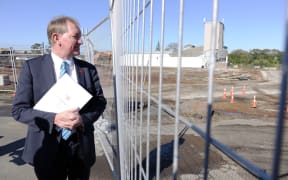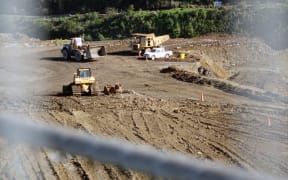Legal academics are questioning whether the government is in the right over its dealings with iwi over the use of surplus crown land in Auckland for housing.
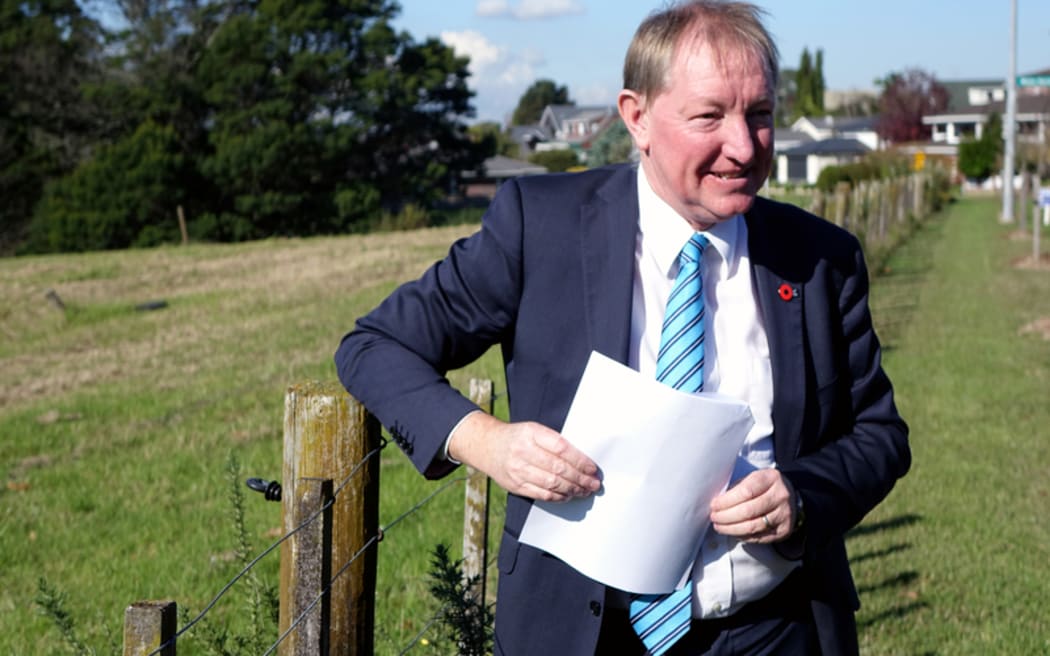
Housing and Building Minister Nick Smith at the Massey East parcel of Crown land identified for housing in Auckland. Photo: RNZ / Kim Baker Wilson
The Government has said it does not need to offer iwi the first right to purchase the land, prompting Ngati Whatua and Tainui (Waikato) to begin court action.
Dr Carwyn Jones, a senior lecturer in law at Victoria University, said it does seem that the process being used for a piece of education land in west Auckland could be in breach of the Tamaki Makarau settlement legislation.
The nine hectare site is one of four unveiled by the Government nearly three weeks ago, at the start of a process to make surplus crown land available for housing.
A letter obtained by Radio New Zealand shows the land was already in a treaty settlement disposal process in December last year, with the next step expected to be to offer it to the pan-Auckland iwi holding company.
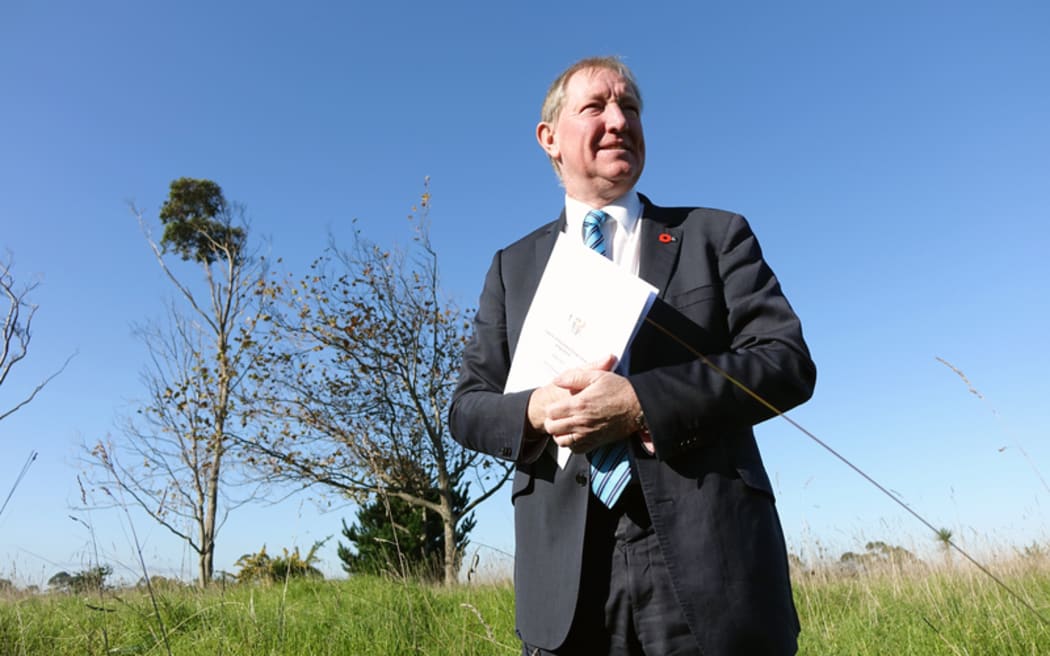
Housing and Building Minister Nick Smith at Crown land at Manukau in Auckland that has been identified for housing. Photo: RNZ / Kim Baker Wilson
However a new programme to find surplus land for housing recently led the Government to approve the purchase of the land from the Ministry of Education, by the Ministry of Building and Housing, effectively ending the Right of First Refusal possibility.
"There are different instruments which are in play here. There's the settlement legislation, other pieces of legislation, but also some of the protocols that came with the settlement, and under all of those the Government faces considerable challenges in demonstrating that it's acting within its powers, but also acting in good faith as a responsible Treaty partner," said Dr Jones.
Associate Law Professor Kenneth Palmer, of the University of Auckland, said the Government's decision to move the land from one ministry to another is significant.
"If that type of change of purpose was used for other Crown land in Auckland, it's possible that no land would ever be available to the iwi collective, because the Crown could always find an appropriate purpose to keep using it for discretionary objectives," he said.
"That's a way in which the obligation to offer back to the collective can be sidestepped effectively."
Minister of Building and Housing Nick Smith said the process used was correct.
"For that first site, it's not intended that Right of First Refusal would be triggered. We're in a different document, and it's important to understand that there's a protocol, that where we are developing land under Section 136 of the Tamaki Makaurau Collective Act (Ngā Mana Whenua o Tāmaki Makaurau Collective Redress Act 2014) for housing purposes, then we need to work with the collective," he said.
Both academics say one issue is around the interpretation of "state housing purposes" and whether the Government's plans for the land meet that definition.
Professor Palmer said the iwi probably do need to get a High Court clarification of the process being used by the Government.
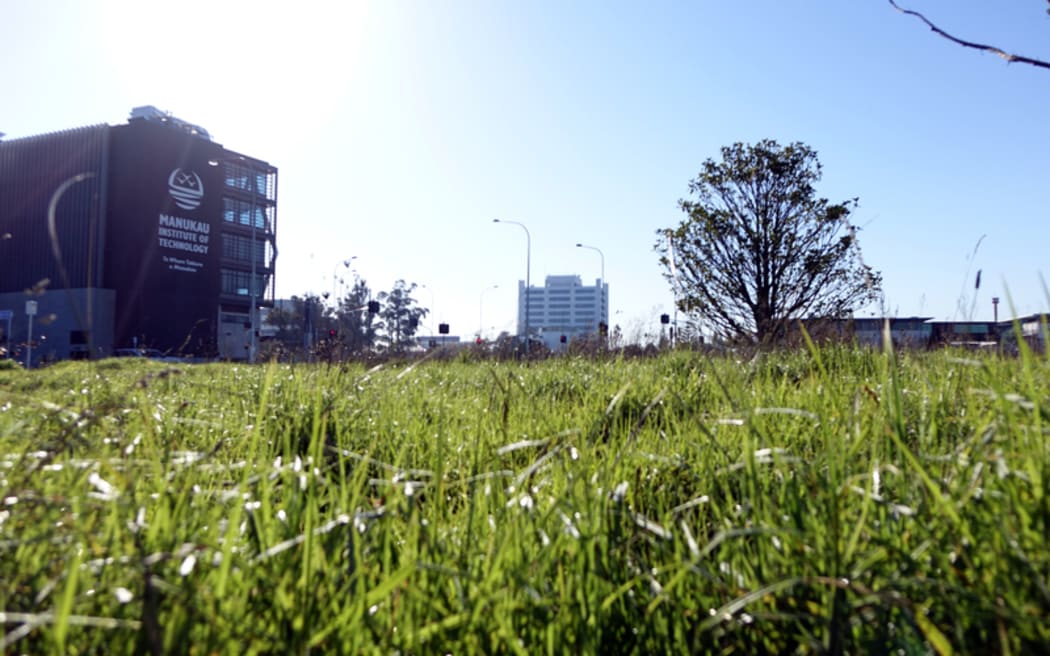
Crown land at Manukau in Auckland that has been identified for housing is close to shopping, education and the train station. Photo: RNZ / Kim Baker Wilson


